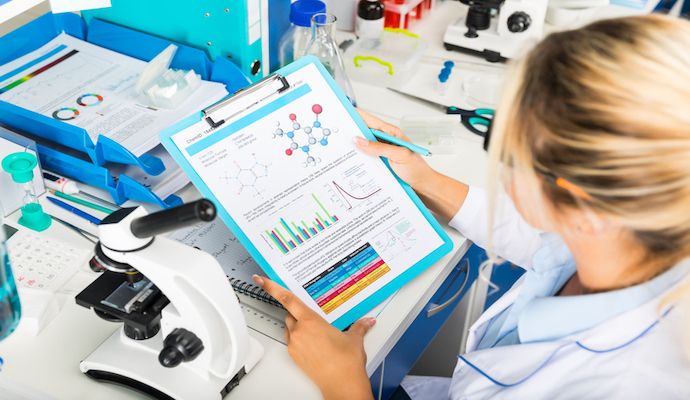Early Data Indicates Remdesivir is a Promising COVID-19 Drug
A new study showed that potential COVID-19 drug, remdesivir, improved two-thirds of severe coronavirus cases, but there may be problems with limited study data.

Source: Thinkstock
- A recent study found that 68 percent of COVID-19 patients who received compassionate-use remdesivir showed clinical improvement, but measurements of efficacy will require ongoing controlled trials to uncover what role the antiviral played in individual recoveries.
For more coronavirus updates, visit our resource page, updated twice daily by Xtelligent Healthcare Media.
The study published in the New England Journal of Medicine analyzed the effects of remdesivir provided to patients who had an oxygen saturation or 94 percent of less while breathing ambient air or who were receiving oxygen support from January 25, 2020, through March 7, 2020.
Of the 53 patients whose data were analyzed, 22 were in the US, 22 in Europe or Canada, and nine were in Japan. Fifty-seven of these patients were receiving mechanical ventilation and eight percent received extracorporeal membrane oxygenation.
Individuals received a 10-day course of remdesivir, consisting of 200mg administered intravenously on day one, followed by 100mg daily for the remaining nine days.
After 18 days, 36 patients (68 percent) had an improvement in oxygen-support class. This included 17 of the 30 patients (57 percent) receiving mechanical ventilation who were extubated.
Twenty-five patients were discharged, whileseven patients died. Mortality was 18 percent among patients receiving invasive ventilation and five percent among those not receiving invasive ventilation.
A 28-day follow up showed that the cumulative incidence of clinical improvement, as defined by either a decrease of two points or more on the six-point ordinal scale. About 84 percent of COVID-19 patients fell into this category, researchers stated. But clinical improvement was not as frequent among patients receiving invasive ventilation than among those receiving noninvasive ventilation for improvement.
A total of 32 patients (60 percent) reported adverse events. The most common events were found in patients receiving invasive ventilation and included increased hepatic enzymes, diarrhea, rash, renal impairment, and hypotension.
Twelve patients (23 patients) had serious adverse events. The most common serious adverse events were multiple-organ-dysfunction syndrome, septic shock, acute kidney injury, and hypotension.
Remdsivir is promising treatment for COVID-19, which is rapidly spreading throughout the US. But the NEJM study has several limitations.
“Our compassionate-use program did not collect viral load data to confirm the antiviral effects of remdesivir or any association between baseline viral load and viral suppression, if any, and clinical response,” researchers stated in the study.
“Moreover, the duration of remdesivir therapy was not entirely uniform in our study, largely because clinical improvement enabled discharge from the hospital. The effectiveness of a shorter duration of therapy (e.g., 5 days, as compared with 10 days), which would allow the treatment of more patients during the pandemic, is being assessed in ongoing randomized trials of this therapy.”
In an open letter from Daniel O’Day, Gilead chairman and CEO, the company explained that although the study uncovered that a majority of patients demonstrated clinical improvements after taking remdesivir, he recognizes the limitations of the compassionate use data from a “purely investigational perspective.” Gilead manufacturers remdesivir.
“These early data from 53 patients have not been generated in a clinical trial and cover only a small portion of the critically ill patients who have been treated with remdesivir,” O’Day wrote on Gilead’s website.
It is not a question whether remdesivir is safe and effective against COVID-19, O’Day continued, but patients improve and how long individuals should receive treatment. Many answers are needed, which is why multiple clinical trials are currently underway.
The National Institute of Health (NIH) sponsored the first clinical trial at the end of February. There were 77,262 coronavirus cases at that time, but today, there are over 525,000 cases.
Remdesivir showed in vitro and in vivo activity in animal models against previous diseases including MERS and SARS. Because these are both structurally similar to COVID-19, experts believe the drug is a promising treatment.
“We urgently need a safe and effective treatment for COVID-19. Although remdesivir has been administered to some patients with COVID-19, we do not have solid data to indicate it can improve clinical outcomes,” said NIAID Director and US Coronavirus Task Force member Anthony S. Fauci, MD. “A randomized, placebo-controlled trial is the gold standard for determining if an experimental treatment can benefit patients.”
